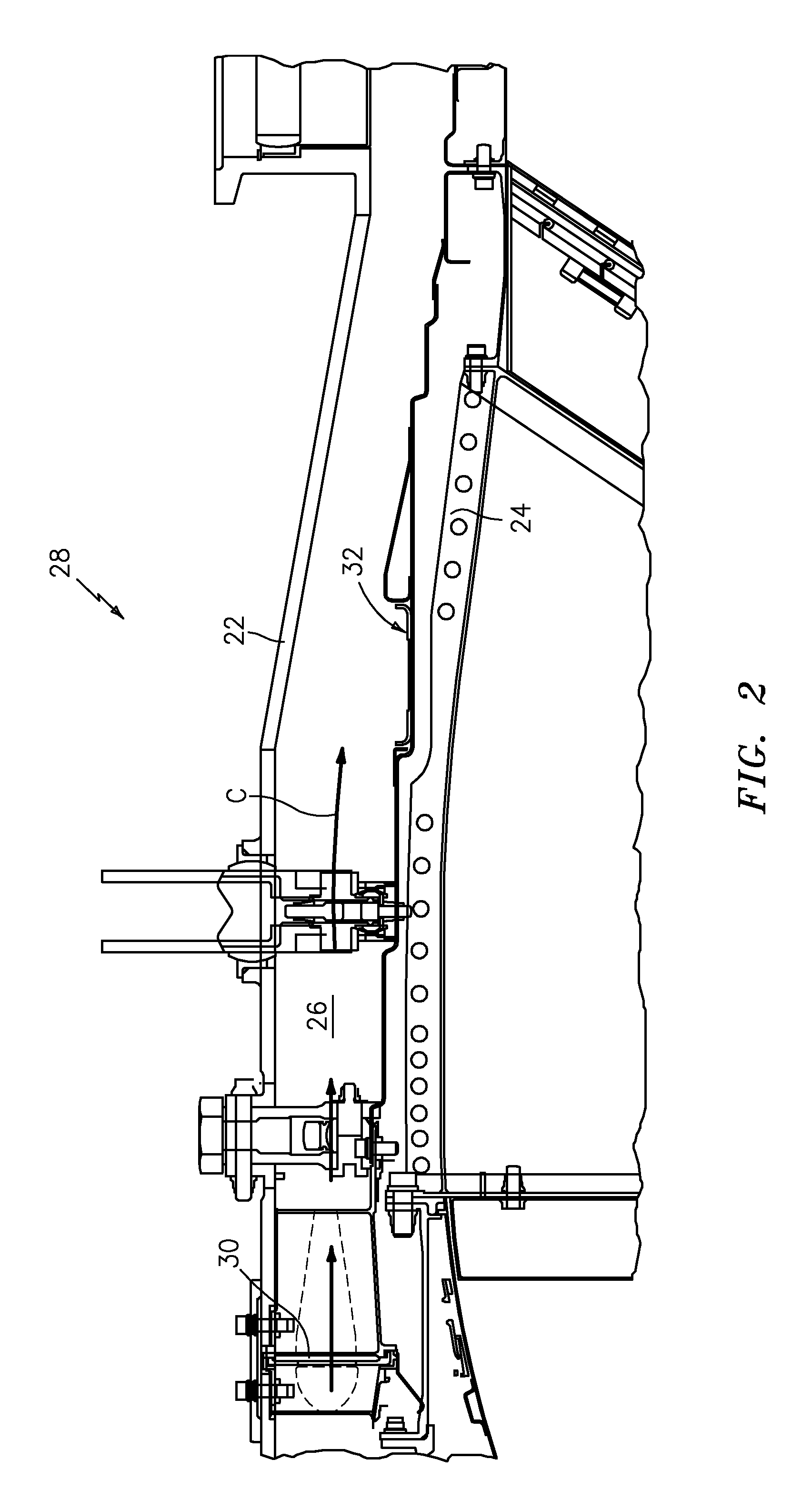Linkage system with wear reduction
- Summary
- Abstract
- Description
- Claims
- Application Information
AI Technical Summary
Benefits of technology
Problems solved by technology
Method used
Image
Examples
Embodiment Construction
[0021]FIG. 1 schematically illustrates a gas turbine engine 10 which generally includes a fan section 12, a compressor section 14, a combustor section 16, a turbine section 18, and a nozzle section 20. Within and aft of the combustor 16, engine components are typically cooled due to intense temperatures of the combustion core gases.
[0022]An outer engine case 22 and an inner cooling liner structure 24 define an annular secondary fan bypass flow path 26. It should be understood that various structure within the engine may be defined by the outer engine case 22 and the inner cooling liner structure 24 to define various cooling airflow paths such as the disclosed fan bypass flow path 26. The fan bypass flow path 26 guides a cooling airflow (illustrated schematically by arrows C; FIG. 2) between the outer engine case 22 and the inner cooling liner structure 24. Cooling airflow C and / or other airflow that is different from the exhaust gas flow (illustrated schematically by arrow F) is typ...
PUM
 Login to View More
Login to View More Abstract
Description
Claims
Application Information
 Login to View More
Login to View More - R&D
- Intellectual Property
- Life Sciences
- Materials
- Tech Scout
- Unparalleled Data Quality
- Higher Quality Content
- 60% Fewer Hallucinations
Browse by: Latest US Patents, China's latest patents, Technical Efficacy Thesaurus, Application Domain, Technology Topic, Popular Technical Reports.
© 2025 PatSnap. All rights reserved.Legal|Privacy policy|Modern Slavery Act Transparency Statement|Sitemap|About US| Contact US: help@patsnap.com



